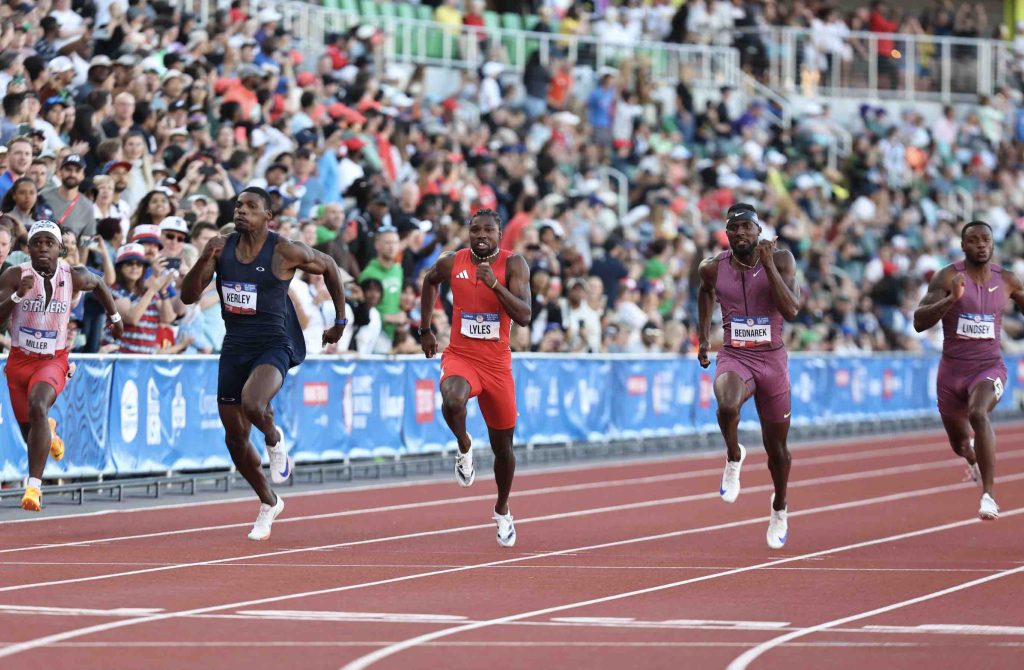Noah became the fastest man alive in the fastest race in history
It was a historic race in every sense of the word. He waited, and we all waited. In the end, it was Noah Lyles.
Lyles is the fastest human alive. This phrase caused a bit of controversy before the Olympics started, as many people questioned why he would give himself that title. He won the 100m final, and people still questioned. Now, the boy who suffered asthma attacks as a kid is the Olympic Champion.
The brash American fulfilled the prodigious hype he built around himself and sprinted out of Paris with the only medal befitting his aura: a gold one. After years of a rollercoaster career, Lyles has reached its pinnacle, ensuring he will be remembered forever. This is USA’s first 100-meter champion in 20 years. The last American was Justin Gatlin. By five-thousandths of a second, Lyles eked by Kishane Thompson- who was the bookies’ favorite, to win the gold by a whisker, and he’s more than happy to let the world hear about it.
This race, the closest since 1980, saw world-record times for the 4th, 5th, 6th, 7th, and 8th-place finishes. Lyles ran faster than he ever has before to beat them all. He took 44 steps from the blocks to the line, while Kishane Thompson took 45. That one extra step made the difference. Lyles opened his stride better than anyone else and clawed back the space that others created from the start. Thompson and others started to decelerate quicker because they had maxed out sooner, leading to fatigue and overcompensation.
Maybe it was the strides or even his mentality. Lyles has it all. The latter perhaps might have played a crucial part in the outcome of the race. A grand entrance from Lyles, serenading the crowd with his roar and jumps. Coming out to the starting line must have its effect on his opponents no matter how little. Those tiny margins matter in high-octane moments like this, and Lyles knows how to play the game better than anyone else.
Fred Kerley of the U.S. claimed the bronze medal.
Reflecting on his performance, Lyles said, “You couldn’t have asked for a bigger moment. I had to take every round as it was, and I was a little upset after the first round. So I came with aggression, and after I ran that 83, I was done with the aggression. My sports therapist told me, ‘You need to let go. You’re…
CLICK HERE to Read the Full Original Article at runblogrun…

